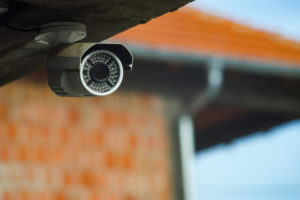
Pennsylvania Gov. Tom Wolf signed into law on Nov. 3 an amendment to extend the Nonprofit Security Grant Program until 2029.
The grant program, created to give funding to nonprofit organizations looking to bolster the security of their facilities, serves majority Jewish faith-based organizations. Administered by the Pennsylvania Commission on Crime and Delinquency, the grant was created in 2019 as part of Act 83 in response to the Pittsburgh Tree of Life synagogue shooting the year prior and was approved to last five years total.
Since its implementation three years ago, the grant has given $20 million to different nonprofit organizations, including synagogues, Jewish community centers, mosques and churches. In 2021, 30 of the grant recipients, receiving $1,293,401 in combined grant allocations, were Jewish organizations in the Jewish Federation of Greater Philadelphia’s five-county perimeter.
“The need is clearly there,” said Robin Schatz, Jewish Federation of Greater Philadelphia director, Government Affairs. “Especially as antisemitic incidents increase.”
Jewish leaders felt the extension of the grant program by another five years was necessary to meet its high demand. Last year, about 20% of applicants received funding, according to Hank Butler, executive director of the Pennsylvania Jewish Coalition. In 2019, 17% of applicants received funding. In 2020, the number was 30-35%.
“The argument is simple, that people who are applying are not getting [funding],” Butler said. “This whole thing started because instead of being reactive to hate crimes and violence, we wanted to be proactive in protecting our communities, our communal facilities, our JCCs, our sanctuaries, our synagogues, mosques, colleges. This was a way of doing it.”
In addition to extending the Nonprofit Security Grant Program for the next five years, the bill will also give the grant program a line on the budget, making it easier to allocate funds in advance. Money for the program will be set aside to be allocated during the passing of the budget. Jewish leaders are hoping for a budget allocation of $5-10 million annually.
The commonwealth Senate and House of Representatives passed the bill with bipartisan support.
“In the days since 9/11, security and heightened security has resonated more with everybody,” Schatz said.
When Butler advocated for the passing of the bill and met with local caucuses, the rhetoric of his arguments remained the same, he said. Most politicians recognize growing security concerns as an issue they need to address.
Antisemitic attacks continue to loom in the area. On Nov. 3, the FBI office in Newark County issued a warning about “credible threats” to synagogues in the area.
According to Anti-Defamation League Philadelphia Regional Director Andrew Goretsky, 21 Jewish institutions reported antisemitic activity in the Philadelphia area in 2021, and 22 reported the same in 2020 — over twice the number reported in years prior.
“The five-year extension of the grant program demonstrates that Pennsylvania’s leaders understand the urgency of antisemitism and the necessity to secure religious and communal spaces,” Goretsky said.
Jewish Federation of Greater Philadelphia Community Security Director Scott Kerns — who was appointed at the end of September as part of the Jewish Federation’s partnership with Secure Community Network — recently toured several Jewish community spaces and consulted with leaders on how they can best enhance campus security. In many cases, this includes installing new security cameras, lights in the parking lot or doors that require key cards to open.
“One of my biggest jobs is to take a look at each facility, because every facility is different, and look to do what we can to harden that facility, so that it is less of a soft target for some kind of attack,” Kerns said.
At the same time, Kerns understands that Jewish community spaces are not “Fort Knox,” he said. Balancing increased security with maintaining a culture of welcoming will be a growing challenge for synagogues and JCCs.
While some people may feel safer attending events knowing that there will be increased security, the same precautions can make others nervous. Kerns said it’s his job to tell people that these security measures are a necessity that allow for the continuation of every day life in Jewish spaces.
“We want openness. That is very important,” he said. “But we also need security.”






